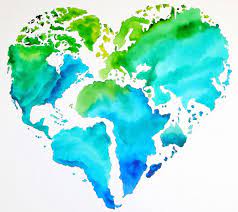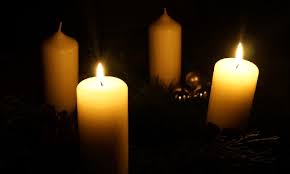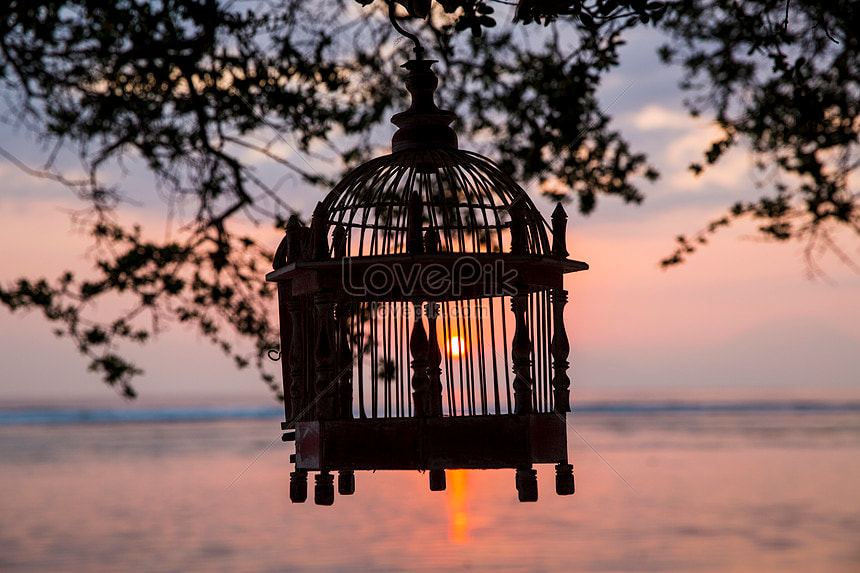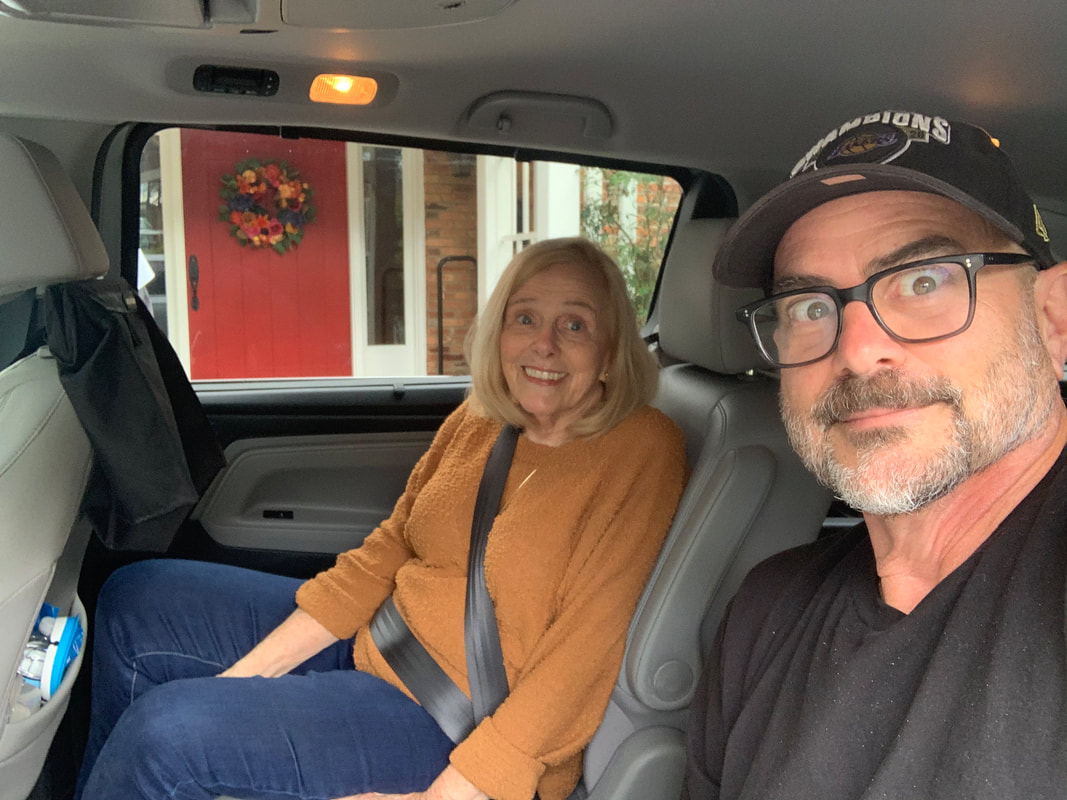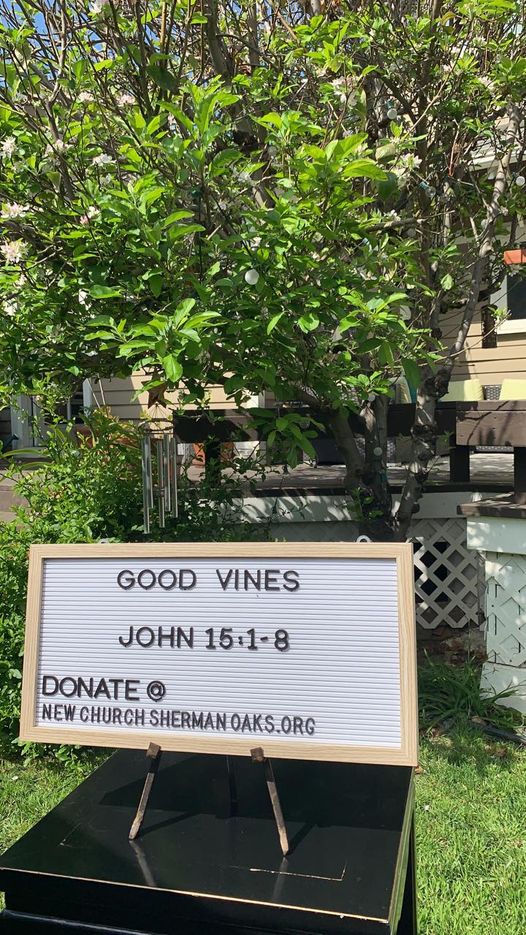Peter said to them, “Repent, and be baptized every one of you in the name of Jesus Christ so that your sins may be forgiven; and you will receive the gift of the Holy Spirit... And he testified with many other arguments and exhorted them, saying, “Save yourselves from this corrupt generation.” So those who welcomed his message were baptized, and that day about three thousand persons were added.
Back in 2017 I posted these questions: What does "church" look like to you? Is it a building? An organization? Or a thing you try to avoid at all costs? The answers varied, of course, depending on one’s personal experience.
When we started New Church Sherman Oaks, we wanted to be a place where all people felt at home - whether it was here in our house, or watching at their own. Then covid hit, and things began to change. One of the good things about this pandemic is that it has forced organizations to rethink the way they reach people. The church is no exception. We face the difficult challenge of reimagining who we are as set out to rebuild our faith community. For example, we’ve omitted the word church in our new name. We did that, sadly, because it has become a toxic word. One that has been hijacked and politically weaponized by some whose gospel seems to be counter to that of the Jesus I know from the Bible. To be fair, I don’t know of any church that is like the way Jesus lived...or like the first church that is described in Acts. I fear we’ve all become more like business and institutions and less like sanctuaries and places of refuge. We’ve kept some ancient rituals but not much else. Here’s what we need to remember: the church is not a building, it’s us. It’s not so much about where we are but who we are. More precisely, how we identify and testify to the name of Jesus Christ. You see, the church is not about taking a passive role in some "religious service." It’s about taking an active role in the space between us as living examples of Christ himself. Being a place made holy by radical hospitality and inclusion; where we love those, who hate us and forgive those who hurt us; a place where we pray for our enemies, feed the hungry, nurse the sick, and listen to the cries of those who have been made to feel worthless. It’s about being a place whose voice speaks up against injustice; whose heart beats for equality; and whose hands give away all that it has so that no one goes without. And we wonder why our pews are empty and people are not stammering to get in.
watch the message here
Such a place might sound impossible to achieve, but it’s not. Take a look at Peter, a simple fisherman who often frustrated Jesus by his lack of faith, launched one of the largest and by far the longest running organization in the world.
It began long before Pentecost, back to when Jesus asks his disciples, “Who do people say that I am?” They tell him what they’ve heard – that he’s either John the Baptist or Elijah or some other ancient prophet. It seems people were having trouble identifying Jesus by ordinary standards because Jesus is not ordinary. There’s a way about how he lives his life that’s unlike anything people have witness, especially from their religious leaders. But more importantly, Jesus wants to know who his disciples think that he is. And it’s Peter who blurts out, “You are the Christ.” Despite his inability to grasp much of what Jesus says, Peter is quick to identify Israel’s promised Messiah. His historic confession not only becomes one of the greatest affirmations, but it is also one of the most rewarding in that Jesus blesses Peter by giving him the keys to the kingdom of heaven! That’s good news for us. Because if Peter can do it, so can we! As we move forward as a church, we must never lose sight of who Jesus is. We are a part of his body. It’s in the way we identify him that people will be able to identify us. You might be aware that in the last year or so, how we self-identify is becoming a part of our every day vernacular. This might be a good thing because it speaks to who we are. It gives us a sense of social belonging, and point of view to live by. Recently I was asked to introduce myself to a group and to let people know which pronouns I identify with. For example, I am Ian and I identify as he and him. But I’m more than just pronouns. As my wife likes to remind me, how I act invites others to identify me as someone they should either trust or avoid. I remember a teacher who came into class all flustered because she had an altercation with another driver on the road. What caused her to be angry wasn’t the person’s actions as much as what was on his back window: a Fuller Seminary parking sticker. One little sticker, she reminded us, can say a lot. This one in particular had the power to define Christianity to someone either positively or negatively. The way Peter and the others identify with Jesus moves them to live like him. So much so that when people see their community, they want to be a part of it. By self-identifying with Jesus, they were able to testify to God’s love and grace like he did. Which takes me to my second point. Being a follower of Christ is more than just knowing who he is. It’s about testifying to what he is all about - redeeming people back to God. Filled with the Holy Spirit Peter stands before the crowd and proclaims Jesus’ message of repentance. He uses the same Greek the word Jesus used, metanoia, which unfortunately is translated as repent. But actually, it means “change” or more precisely, “change your mind.” Our old priest Fr. Barber told a story about the time he was waiting for his plane to board, when a man approached him to tell him about Jesus. Mind you, he’s wearing his priest collar which should have been a dead giveaway that he might have already known who Jesus was. But it didn’t stop the man from preaching to a preacher. In telling the story Fr. Barber made a great point. We can’t beat or berate people into heaven. Lord knows the church has tried. No, he said, “We have to show them the way.” If we want to change people’s minds, or show them a new way of living, we must first be willing to live that way ourselves. It didn’t take long for Peter and the gang to see just how powerful such a testimony can be. As our reading reveals, on one single day three thousand people join their community because of how they identified and testified to Christ. Talk about a plan for church growth. It seems like a no brainer. Just build a community in Jesus’ name where God’s love is always present and visible, and people will come. If only it were that easy. But here’s the thing, by our faith Jesus has given us the keys to the kingdom of heaven. We cannot just shove it in our pockets and purses. We gotta use them to unlock the divine love that is already in us. We need to open the doors of our hearts and share the gospel in that wide open space between us and one another. Samuel Coleridge said, “Christianity is not a theory or a speculation...it's a life. And it's not a philosophy of life, but a life and a living process." We who boldly gather in Christ’s name are called to imitate him by living and caring like him. It’s that simple. And yes, it’s that difficult if only because the way of Christ is counter cultural to the way of the world. But it’s in this space between heaven and earth, between us and them, and you and me, the Holy Spirit comes to meet us, empowering us to keep Jesus’ ministry going. Which is what we do every time we love God, love others and serve both. This is how we identify and testify to Christ Jesus. This is the way we define ourselves and set ourselves apart from the world while thriving in the world. It’s here, in anamesa, we are the heart and hands of Christ who embraced life with such radical love that every person he came in contact with saw the light of God radiate in his body and were forever changed. May we never forget that we are the very body of Christ, blessed and broken, to be a living testimony to the love of God as it was in the beginning, is now, and forever shall be, Amen. Work Cited Byassee, Jason. "What Are We Baptized For?" Sojourners, May 2017: 44. Kim, Jin S. Feasting on the Word: Year A, Vol. 3. Edited by David Bartlett and Barbara Brown Taylor. Louisville: Westminster John Knox, 2011.
0 Comments
When the day of Pentecost had come, they were all together in one place. And suddenly from heaven there came a sound like the rush of a violent wind, and it filled the entire house where they were sitting. Divided tongues, as of fire, appeared among them, and a tongue rested on each of them. All of them were filled with the Holy Spirit and began to speak in other languages, as the Spirit gave them ability. ~ Acts 2:1-5
The Spirit of God is a tricky thing. It can be difficult to grasp on many levels. Yet, it’s a profound part of creation and an intimate part of God’s being. With a quick word study, you’d see the Hebrew word ruâch and the Greek word pneuma, which are used to describe the Holy Spirit, also mean wind and breath.
Wind is easy to explain. I can feel it and hear it or watch it as it lifts up kites or kicks up dust. Same with breath. On cold days I can see it. Every morning I can smell it. And anytime I exercise I always hear it. Breathing is such an automatic response, that we rarely even think about it until we can’t do it. But Spirit is something unique. It has no particular scent, or shape or form. It seems invisible and hard to grab hold of. And yet it’s not. We can sense it and feel it. Henri Nouwen described it best when he said, “In the Holy Spirit, God comes to be as close to us as our own breath.” No wonder the same word is used to describe wind, breath and Spirit. In Genesis, God’s Spirit is used to breathe life into all creation. It was the first thing to BE and it has never ceased to be. Because of this, we can believe God’s Spirit has never left us. It’s the air in the atmosphere. The wind that kisses our skin. The breath that fills our lungs. No matter where we are, what situation we find ourselves in, the Spirit of God is present - always leading us back to God’s perfect love and grace. It seems a shame to only celebrate it once a year.
watch the message here
If COVID has done anything good in the world, it has brought our attention back to our breath. Here is a virus that, in most cases, attacks the respiratory system. Many who were infected did not survive, even when they had ventilators to help them breathe. But even those who didn’t get sick were made aware of their breath. Each time I put on my mask, I was mindful of my own breathing every time my glasses fogged up.
Although being fully vaccinated has helped me breath a little easier, I can’t help but think God used this pandemic to tell us something. “Slow down. And breathe.” The Holy Spirit, the very Breath of God, is an invitation to breathe life in. But it is a gift given with purpose - to share the Spirit of God’s love with “every breath we take, every move we make.” Of course, COVID wasn’t the only pandemic that infected our country, or made us aware of our breathing. It was barely a year ago when a cell phone recorded George Floyd pleading, “I can’t breathe.” I don’t recall how many times he said it before he died, but his murder exposed the truth about the sin of racism, a deadly virus that threatens the very spirit of our country, and the Spirit that breathes life into the body of Christ. But here’s the amazing thing. As one man let go of his final breath on the streets of Minneapolis, God’s breath came roaring through the streets of our communities like a wild and raging cyclone. Like it did in ancient Jerusalem, God’s breath filled people’s lungs; empowering new voices to stand up against injustice and demand equality for all.
In a Pentecost sermon given years ago, Barbara Brown Taylor told her congregation, “The same Spirit of God that had entered Mary and given birth to Jesus, has entered those who believed so that God could be born again.”
With a single breath, God transforms disciples into apostles. And empowers them to create communitiesf God’s love throughout Asia Minor, northern Africa, and southern Europe. Imagine, then, what the Spirit of God can do through us. There are over 2 billion people claiming the name of Christ. The Christian Church alone has over 45,000 different denominations throughout the world. But how many of these churches resemble, even in the slightest bit, that first church? Have we lost that thunderous roaring Spirit we once had? Has our infighting and division stripped us of our unity and vitality? You might be inclined to say yes. But let us not forget that while unity was instrumental in creating the church, uniformity was not. The Spirit that moves in and around us, is as unique to us as our own breath. It speaks through everyone differently; revealing the diversity of God’s love and the many ways the gospel is proclaimed. Young, old, male, female, rich, or poor the Holy Spirit is given to anyone who wants it, because God’s love always needs to be proclaimed. We need to always celebrate Pentecost if only because it reminds us that we are still a part that first breath that ushered in the first church. We, like them, are called to proclaim the gospel truth in all that we do, as the Spirit moves us to do so. While churches might not always agree with one another on how to do things, we are still one body whose head is Jesus Christ. We share a common purpose – to spread the good news of God’s redemptive love to the furthest corners of the world. Again, Henri Nouwen said it best. “The Spirit of Jesus comes to dwell within us, so that we can become living Christs here and now.” That’s our mission. To be like living Christ’s in the world - loving God, loving others, and serving both. Here’s the thing I hope you have come to realize: God uses the Holy Spirit to anoint ordinary people like you and me, to usher in the Kingdom of Heaven and to bear the good fruits of love, joy, peace, patience, kindness, goodness, faithfulness, gentleness, and self-control. With just one breath, God made us partners in a beloved community to complete the mission of Christ; extending God’s redeeming love to all people – strangers and neighbors alike. Pentecost challenges us to live into that love by making Christ present in the midst of all that we do. This might mean wearing a mask a little while longer until the virus is no longer a threat. Or standing up and shouting out for racial justice and equal rights for all people. We can breathe in the power of God’s spirit. But we can’t hold it in forever. It must be shared. This is our time to breathe like the Good Samaritan who showed such compassion for the injured stranger in the road. It’s time for us to breathe like that little boy, who with only a few loaves of bread and a couple of fish, fed the hunger of the world.
Work Cited
Bartlett, David L., and Barbara Brown Taylor, eds. Feasting on the Word: Year B, Vol. 3. Louisville: Westminster John Knox, 2007. Lindsay, Cheryl. Sermon Seeds for May 23, 2021 (accessed on May 19, 2021). www.ucc.org. Nouwen, Henri. Bread for the Journey: A Day Book of Wisdom and Faith. New York: Harper Collins, 1997. Taylor, Barbara Brown. Home by Another Way. New York: Cowley, 1999. Walker, Kathy. The Advocate for May 23, 2021 (accessed on May 19, 2021). www.episcopalchurch.org illustrations by Dreamstime.com ( https://www.dreamstime.com/illustration/breathing-exercises.html) Poem written on 040-608. He knows who he is. Written to the love of my life. She knows who she is.
I am not asking you to take them out of the world, but I ask you to protect them from the evil one. They do not belong to the world, just as I do not belong to the world. Sanctify them in the truth; your word is truth. As you have sent me into the world, so I have sent them into the world. And for their sakes I sanctify myself, so that they also may be sanctified in truth. John 17:15-19
Human desire to escape the incessant pressures of the world is nothing new. The tourist industry spends millions to lure us away with luxury cruises, time shares, and all-inclusive resorts where we can leave the world behind us and disappear. With the advancements in Covid vaccinations, their message is being welcomed with open hearts.
Of course, for centuries men and women of different religions have left their worldly pleasures behind to live a life of asceticism. Even Jesus, who carried nothing with him, had to escape every now and then if only to be alone in prayer. One such story in the Bible comes from the Gospel of John 17:6-19. In what is often called the “high priestly prayer,” Jesus petitions God to look out for his disciples because he knows how hard it is to live in this world without being shaped by it. It’s an honest yet difficult prayer to understand. One that illustrates the paradox of our faith. As his followers we are called to live perilously perched between two worlds – ours and God’s. While I don’t think there’s a formal name for this place, but I have begun to call it Anamesa, which is a Greek adverb that means between. But it’s more than a place between heaven and earth, it’s also the space between you and me, us and them, birth and death, past and future, and so on.
Anamesa is our reminder that our God is not some distant God. But one who is very personal and always present. So we must also be present. Mindful of life around us. In Anamesa, I’m not alone. There is the other and God in between us. And wherever I’m standing with God ...I am never standing idly. Trust me, God will keep you busy.
Just look at Jesus. He doesn’t stand around or run away from the space between his ministry and his crucifixion. He lives fully and faithfully in Anamesa, as a bridge between heaven and earth, where the pain is real, and suffering is happening in real time. As you hear this world crying out for help and relief, you get a choice. You can stand passively on the sidelines waiting for God to act. Or actively engaged in it like Jesus did, bringing God’s redemptive glory to light. Like I said earlier, Jesus recognizes how hard it is to truly live in this paradox of “being in the world, not of the world.” He prays for us because he understands how tough it is to live out one’s faith, especially in the midst of those who disagree with you or want to harm you. And they will. Jesus knows what the world is capable of doing. He shares his knowledge with us - and shows us a way to live between the human and divine by bearing the fruit of love, peace, kindness, and generosity. Jesus gives us what we need to live like him, fully and faithfully in all that we do, no matter where we are. On the night he will be handed over to his death, Jesus intercedes for us because he knows the world will push back. Let’s face it. Our world will always, in one way or another, be the alternative to faithfulness and not the means to it. As Christians we might be tempted to leave this world and all its mess behind. We might desire to retreat to a monastery or a religious community where we can live apart from the greed, violence, and moral decay that’s affecting our communities. But God has not called us to move away from it. Instead, we are called to move towards it - proclaiming the good news, freeing the captives, healing the brokenhearted.
watch the message here
And yet, even in churches that bear Christ’s name, there’s hesitancy. It’s as if they are standing in a liminal space and not in anamesa.
I’ve been in churches and heard them pray and plead to God to come take them to heaven today! As my friend Dawn said, “That’s just being lazy.” Why would they pray this way? Perhaps it’s because they want to escape the judgment and abuses of this world? Or maybe they simply don’t want to do the work of Christ; to be a bridge between humanity and heaven. Imagine if Jesus came and took all his followers away right now. Who would be left to proclaim the good news and live out the gospel? We are not called out of this world, but into it. Jesus made it crystal clear that there is no escape from this reality because it’s here, through us, that God’s glory needs to shine brightly. So in his prayer, Jesus asks for us to be sanctified; set apart for doing God’s work in the world just as he has already set himself apart and is about to set himself apart through the cross. Speaking of his cross...it’s a perfect illustration of how to live out this paradox of faith. Picture the two wooden beams. The vertical one reminds us of the connection between heaven and earth. The horizontal one of our connection between each another. In that space in between the two, is Christ. He is the one who sets us apart from the world by trusting us to care for the world. The cross reminds us that world does not shape us or save us. Christ does. While we are in this world, Jesus prays also for our unity and protection so that our joy might be complete, today – not in some future realm, but today in this world that is far from anything heavenly. So the questions we must answer is this: How do we live in this world without succumbing to its values and pressures? How do we stay faithful when the world makes it so easy to lose faith? The only answer I have is one we spoke about a few weeks ago, when Jesus said, “Abide in me.” Make your home in Jesus who embraces the sacred space of Anamesa. It’s here, in this in between space, Jesus reorients the direction of our hearts towards God’s truth. A truth which is revealed in the world every time we love as he loved us. When we abide in Christ, we allow him to live through us; seeing God’s glory like he did in the persons in front of us and beside us. And to act and react as if we were giving God all the best that we are able to bring. Which we do, every time we love one another. The purpose of the Gospel message is not for us to withdraw from society but to be fully present in it – living our lives, faithful and true, to the Good News in all the ways we create justice, love kindness, and offer mercy. This is the example that Jesus sets for us in his life, death, and resurrection. He is the example by which we are called to embody today. Therefore, it is his name I invite you to stand with me in the sacred space of Anamesa. Come let us walk together in Christlikeness, as the fullest expressions of God’s love. Let’s struggle, and share, and thrive in the space between heaven and earth; between us and them; between you and me; and in between all the other in between spaces you can imagine. We are Christ’s body, sanctified by his blood to be a sacred bridge between this world and the world that is to come. We are his church, a sanctuary for those seeking peace from violence; freedom from whatever is holding them captive; healing from the wounds and pains they carry. We are his people, a community that welcomes all to come and dwell in God’s presence no matter who you are or where you’re from. As members of Christ’s church, we must take concrete steps, today, toward becoming the person and the place the Lord would have us be. To do this means we have to let go of the things of this world that hold us back from clinging tightly to Christ. We must let go of the stuff that is stopping us from truly loving, and caring, and sharing the joy that Jesus has given to us. We must let go of the guilt and shame, the anger and resentment that is holding us back from living into our truest and best selves. This is always the hardest part, isn’t it? Letting go of the anger and jealousy, forgiving others who have hurt you, and moving beyond what you have known and done your entire life. But in doing so, your head and heart and hands are free to grab hold of Christ and abide in him. And I can’t think of a better place to do it than in Anamesa – the space where God is always present, meeting us where we are. As we move from this place to the next, as we walk through Anamesa, I hope that you will walk with me stepping into the future, by paying careful attention to that space between our steps, a shared and sacred space here on earth, where God awaits us to raise us up in glory. Work Cited Bartlett, David L. and Barbara Brown Taylor, eds. Feasting on the Word. Year B, Vol. 2. Louisville: Westminster John Knox, 2008. McCormack, Jerrod. In The Space In Between. May 13, 2018 (accessed on May 15, 2021).
Dream Five They’re just sitting there looking forward looking ahead the world seems to be spinning the sky blue moving like time lapsed photography he’d seen stuff like that on television before but never in a dream his hands are on his knees holding himself in from running out of things to say hers are crossed legs out they seem complacent she seemed relaxed Dream Eight She punches him in the arm he wakes up Dream Nine He stands confused looking around the room for her she is in a grey cocktail dress made of silk she holds two drinks out knowing there is a good possibility she will stain the fabric he knows she’s there it’s a feeling he has she knows he has arrived it’s a feeling she has she smiles as she turns to catch his eye he blinks and she is gone on the ground are two smashed glasses bleeding to death in a pool of vodka the busboy bends down to clean the floor his tail pops out of his pants he is not real but the emptiness is Dream Twelve he walks up from behind and smells her hair it smells like sunshine the day is grey but she lights up the world he breaths his breath warms him inspiring color to paint his imagination like a muse to a writer she whispers “it due” as he reaches out his hands and grabs her from behind filling his hands with her she spins it’s not her he spins she returns they bow to each other and dance she spins he bows she walks away he is awoken Dream Fourteen Spread out over weeks she was no longer there an affair in full color slipped back into black and white the lines no longer blurred all point in the same direction what should have been torture turned out to be the best sleep he’d had in a long time Dream Fifteen He sat in the boat fishing he doesn’t fish he pulls out bait it’s a baby he cast into the endless water and waits then pulls out a child from the water unhooks it and drops it on the bottom of his boat reaching for more bait the child becomes a woman she hands him his reflection in the water he is old and grey retired and tired he opens up the bait box and pulls out another baby cradling it in his arms until it is a grown woman another muse Dream Twenty He is alone and doesn’t remember the dreams from this point on she is gone at least for now
So you can see how Mother’s Day can bring up a gamut of emotions. Some joyful. Some painful. But whether you like your mom or not, or had a good relationship or a painful one, you are here today because of her. So let us honor mothers, for they are us.
When my son was four or five he ask, “Who is God’s mom?” That’s a bold move I thought for a minister’s kid. A question like that is bound to incite an impromptu sermon from any pastoral parent. Sparing him the torture, I simply said, “You are.” He told me he couldn’t be God’s mom because he was a boy. I told him, “You don’t have to be able to get pregnant or have a particular chromosome to bring God into the world.” I think that only confused him more. So, I tried some 13th century theology on him, quoting the great German mystic Meister Eckhart who said, “We are all called to be mothers of God, for God is always waiting to be born.” This only made matters worse. So, I did something I knew he’d understand. I began to preach. And this is the gist of what I said, “You and me, male and female alike, are called to carry in our bodies the very life of God. It’s our job,” I said, “to give birth to God’s incarnate love in all that we do.” Since then, Sean hasn’t asked anymore deep questions about God. At least not to me. But this gives us some food for thought for today as we take a different look at what it means to be a mother, especially the kind who gives birth to God. This week, CBS News ran a story about a teenage girl named Monyay who aged out of the foster care system last year. As if her senior year of high school was already ruined by the pandemic, now Monyay had to brace herself for spending the rest of her life on her own. That all changed just a few months after turning 18, when she was adopted by Leah Pascalides, a 32-year-old single woman who used to be Monyay’s caseworker. For over six years the two had formed a close friendship; one built on honesty and trust. When asked why she made the decision to make a legal commitment, this new mom said, "I wanted to make sure she knew that she had somebody who loved her." Love is the way we give birth to God. Their story reminds me of a small gesture made in John’s gospel that often goes unnoticed when we talk about the passion of Christ. A story of widows and orphans coming together to form a new kind of family, one that bear the blessings of God’s love into the world. READ: John 19:25-27 In his final act of love, Jesus redefines family and motherhood. On one side is his biological family. And on the other is a family of a different sort, a kind not based on DNA but connected by blood nonetheless.
watch the message here
The Bible doesn’t tell us much about Mary, whom I suspect was only a young girl when God entrusted her to carry and care for the savior of the world. But as a mother we know this: It is Mary who gives Jesus his first taste of life and love. She teaches him how to serve and care for the world in all the ways she cares for him. Mary sets the example for Jesus to follow. The one we’re called to follow.
In watching her son be crucified on a cross, Mary realizes how painful and risky it is to bring God’s incarnate love to life. And then there is John, who has been with Jesus since the beginning. He is seeing firsthand the risk he is called to take. I’m sure watching his teacher and dear friend suffer as he did, would have been an emotional experience for John. Perhaps Jesus, knowing Mary’s heart, put them the two together so they would care for one another. In this one act of compassion, Jesus forms a new kind of family unit – one that shares God’s incarnate love, even though it doesn’t share DNA. Together, this new family will carry and care for Christ in the ways they live out his love in the world. Today our world is hurting, not just from the pandemic, but from the racial unrest, injustice and violence that permeates nearly every community. Now more than ever we need God to be present. And one of the ways God shows up, is in and through us. So yes, we are called to be mothers of God, because God is always in need of being born. The way we go about doing this is as diverse as the kinds of mothers out there. My best example of motherhood isn’t my mom, or mother-in-law. But the mother of my three children. Since giving birth to our firstborn, Kathleen has been in a perpetual state of sleep deprivation. And yet we can always count on her to show up - with a snack, a story, a kiss for a booboo, or a lesson to learn. While there are so many different types of mothers out there, Kathleen takes it to a whole new level because she not only cares for the four of us, but she also opens her heart to the world. I believe I’m a better parent and a better person by watching her give birth to God’s love daily. So to those who show up everyday wearing the hats of an EMT, a gourmet chef, a chauffeur, maid or mathematician; to those in the NICU’s and ICU’s of life watching over us and keeping us safe – today is your day, and we honor you with our love. To those who juggle calendars, finish science projects, and make the time to make up stories that make us feel better – today is your day, and we honor you with our love. To all the ones who show up to cheer us on and lift us up when we’re down; to those who are willing to be there when perhaps our own family can’t or won’t; to the ones who are always ready to open their homes and love us as if we were their own – today is your day, and we honor you with our love. To the diversity of mothers, male and female alike, whose hands cradle us, whose hearts love us, whose eyes watch over us, whose ears listen to us – today is your day. To anyone who stands up for what is right, demanding justice and leading us towards the way of peace, we honor you for showing us what incarnate love looks like. You are the ones who give birth to God’s sustaining love, power and presence in the world. You are the ones who carry Christ. With each act of love, you allow him to form and take shape within your womb, and to bring him safely into being. “We are all called to be mothers of God for God is always waiting to be born.” From his cross, Jesus unites us all, and calls us into a new kind family. One where, like Mary, we are mothers and children at the same time. We are also called to be disciples like John, who will risk it all for the sake of bearing the love of God, a love that is on full display even in the brutality of a Roman cross. By the blood of his cross, we become a part of his bloodline - brothers and sisters, mothers and fathers, bearing the love of God inside us. So, the question for you is this: Will you carry God’s love to full term? *Adapted from various Mother's Day sermons over the years. Ian Macdonald (1966-) is an American born poet, today.
It’s not uncommon for Jesus to use the landscape around him to teach ancient scriptures to his followers. Like this one found in John’s gospel about the vineyard and the vine - whose roots come from the prophecies of Isaiah.
Last week, Jesus looked over the green pastures and drew from scripture to describe God as a trusted shepherd caring for his flock. Today, he describes God as a loving and attentive gardener – pruning and preparing us for unbounded glory. Click here to read John 15:1-8 As Jesus and his disciples leave the upper room to go pray in the Gethsemane garden, they most likely wandered past the vineyards of Kedron. There, among the leafy vines heavy with grapes and the warm glow of the fires burning in the distance, Jesus is inspired to remind his disciples about their relationship with him and with God. We don’t have to know much about vineyards to understand the point Jesus is making when he says, “I am the true vine. And God is the vine-grower.” Scripturally speaking, Israel is described as the vine. By Jesus saying he is the true vine, he’s saying his God’s chosen, the one’s called to bear the fruit of God’s kingdom. But even Jesus understands that he does not do these things alone. God is with him, carefully attending to him and his needs, so the vine, like my apple tree, can bear fruit.
watch the message here
It’s safe to assume when Jesus tells his disciples, “I am the vine and you are the branches” he is saying the root, stem, leaves, tendrils and grapes are all one part of the vine.
And any part of the vine that is that isn’t doing its job will be removed and thrown into the fire. Just the same, any part that is bearing fruit will be pruned and shaped to bear more. Although we are free to rove and climb the trellises of life, we can never lose sight of the ever-attentive gardener in our midst. The one who is cutting and pruning to increase the yield of the vine. This tells me that we will all feel the stinging pinch of a sharp pair of pruning shears at some point in life. And even feel the searing heat of the fire. Before you let your mind wander off to some dark and dismal place, I don’t think Jesus is speaking of some fiery eternal pit. He’s looking around and seeing literal fires burning in the distance. Fires that are providing light and heat. You see, even dead branches have some good use in God’s kingdom. After all, everything that God does is done to give life, and to increase the yield of all that is good in life. Just think about that dead branch being tossed into the fire. What happens to it? Does it burn forever? No. Eventually it transforms into something new. Ash. An avid gardener knows that wood ash is an excellent source of lime and potassium and other things that plants need to thrive. Let’s not forget what God did with those two wooden branches hewn from a mighty tree and fashioned into Jesus’ cross. They were used by God to transform death into everlasting life. So here we are with Jesus looking at his disciples (mind you, one has already gone off to betray him). Despite their lack of truly getting what he has been telling them about what is to come, he still is able to see their fruit. He tells his disciples, us, that we are part of Jesus, bearers of God’s redemptive fruit. Today we have so many distractions that draw us away from allowing the fruit inside us to bloom. Sometimes the busyness of life keeps us from producing God’s goodness. Occasionally we will need to be trimmed and pruned if we are going to live into our calling. This means we have to let go of the things that are stopping us from thriving. But how can we do this when we are still hurting from this pandemic? How can we do this when the news around us leaves us spiritually and emotionally drained? Jesus says, “Abide in me as I abide in you.” This is an invitation to attach our lives to his. A life that God has carefully shaped to bear the fruit of the Spirit. Fruit which scripture describes as love, joy, peace, patience, kindness, goodness, faithfulness, gentleness, and self-control (Galatians 5:22-23) To abide in Jesus is to make his Spirit your greatest priority. The way to do that is to remain close to him - his love and faith. Years ago, I visited a winery in Sonoma Valley up in Northern California. It was there I learned a few things about vineyards, and grape growing. For example, the soil, the climate and all the stress they put the vines through add to the grape’s unique character - which provides the distinctive notes found in a bottle of wine. These flavors are most prominent in the grapes produced closest to the central vine where the nutrients are the most concentrated. Just as the life of a branch is sustained by being connected with the vine, our lives are sustained through a close relationship with our Lord. When we are connected to Jesus, when we make our home in him, we are able to draw from his spiritual abundance that helps us bear his fruit – God’s steadfast love. This can be hard at times. Especially given the world and the issues we face today. There are so many other things there that draw us away from our source of life. But the branches and leaves and tendrils and fruit cannot survive without the vine. For this same reason we need to remain close to the one who feeds our soul and gives us life, if we are to truly live. Lately, I’ve been struggling. I recently confessed to a friend that I am not really feeling the joy of my ministry anymore; my heart struggles to find words to preach; even my prayers seem empty. As I was naming these issues, I began to see where I have wandered away from my source of life. I confess that I have allowed the pandemic, and politics, and other personal stuff to take my focus off abiding in Christ. This has made it impossible for me to bear any good fruit because I am not being nourished by a healthy source. Imagine what would happen to my apple tree without water or fertilizer. Not only would it not produce fruit, but it would shrivel up and die. We are not meant for death, but life. And Jesus is the way to living and thriving in this life and beyond. I guess the moral of this story is this: The closer we are to Jesus the stronger our branches of faith become, the better yield of fruit we produce, and the greater the glory we bring to God. Here Jesus is inviting us to take an inventory of our lives. He’s asking us to examine what is...and what isn’t...producing fruits of the Spirit in our lives. His is an invitation to give oneself, the good and the bad, over to God so that we can be shaped and transformed in God’s abiding love. Our goal is not to remain a scrawny, twisted branch. We are called to be become one with the true vine so that we can his bear fruit, and nourish others so they can sprout faith and grow in love. So, I invite you to look within yourself and ask, “What is going on in my life that is stopping me from really bearing the best yield of my good fruit?” Perhaps it’s a toxic relationship that needs to end. Maybe it’s some deep seated anger you haven’t honestly dealt with; or resentment that you still hold on to. Maybe you’re jealous of a friend. Or envious of someone else’s life. It could be an addiction, or you’re just wandering along the trellis of life without any real meaning, because you don’t really understand what your purpose is. There are so many things that draw you away from becoming your best self. Whatever you are dealing with, whatever is stopping you from truly thriving and abiding in God’s love, Jesus says ask God to take it away. And it will be done for you. To abide in Jesus is to abide in God. To abide in God, is to invite God into the fullness of your life – however messy that may be. It is to welcome and allow God to prune and shape you so that you can produce the sweetest, most heavenly fruit possible. To abide in God, is to be empowered to transform this world - loving others, living into the mission of the Church, restoring all people to unity with God and each other in Christ. Jesus says, “I am the true vine… abide in me as I abide in you.” This is not a command, but a reminder of who we are and what we are called to be – beloved children of God, called to a new and wonderful way of living. A way that begins and ends with God’s steadfast and abiding love. As the living embodiment of Christ’s body, we are called to bear the fruit of God’s love always. This is why we always have to show up. This is why we have to make love our highest goal. We do this by living into our Christlikeness by living out the love of God in all that we do. For God’s love liberates us to live fully and faithfully. It opens our eyes to see the injustices around us and empowers us to act in ways that seek the well-being of all people. God’s love levels the playing field so that everyone can thrive and rejoice. It transforms all our messiness into goodness, so all of creation will bear good fruits of love, joy, peace, patience, kindness, goodness, faithfulness, gentleness, and self-control. Therefore let us go and live into the blessedness of life, bearing the fruits that proclaim God’s glory, now and forever. Amen. Work Cited Bartlett, David L. and Barbara Brown Taylor, eds. Feasting on the Word, Year B Vol. 2. Louisville: Westminster John Knox, 2008. Montes, Luz Cabrera. How to Love. (accessed May 1, 2021). |
Ian MacdonaldAn ex-copywriter turned punk rock pastor and peacemaker who dedicates his life to making the world a better place for all humanity. "that they all might be one" ~John 17:21“Prius vita quam doctrina.”
~ St. Thomas Aquinas (1225–1274) * “Life is more important than doctrine.”
Archives
June 2024
|
